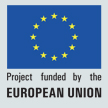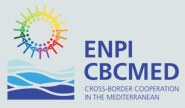Creation of ad-hoc SWMED solutions for different target areas in all partner countries
(Responsible: IRIDRA Srl)
Task 4.1 Identification of typologies of settlement for which sustainable water management solution have to be developed.
On the basis of the analysis done in WP3, settlements of project areas will be organized in typologies. A preliminary list of typologies could be the following:
A. Urban areas with prevalence of multi-store buildings and in house water distribution systems served by water distribution and sewage (mixed or rain/black separate) systems and treatment plant;
B. Urban areas with prevalence of single-two family houses with garden and in-house water distribution systems served by water distribution and sewage (mixed or rain/black separate) systems and treatment plant;
A.1 As typology A but not connected to treatment plant
B.1 As typology B but not connected to treatment plant
C. Urban, peri-urban or rural areas with in-house water distribution systems served by water distribution but no sewage system
D. Urban, peri-urban or rural areas without in-house water distribution and sewage systems
E. Specific context settlement (e.g. refugee camps)
Within this activity a socio-economic surveys on MED settlements in urban and rural areas will be conducted in order to verify the social sustainability of the solutions to be proposed. The findings emerged from these survey will be directly integrated in the Report on the tailor-made solutions for each settlement typology.
Task 4.2 Development of tailor-made solutions for each settlement typology
For each typology identified in the previous task a set of the most effective SWM techniques and solutions will be defined together with the administrative (urban planning, building regulations, water resource programs) and financial (tariff schemes, public works national or local programs) tools for their implementation. IRIDRA will elaborate draft proposal of sets of solution for each typology that will be analyzed, integrated by each partner to adapt it to its territory. For the discussion and adaptation of the draft proposal to local conditions, a 3 days technical workshop in each location (Rome, Ragusa, Malta, Tunisia, Palestine) is envisaged (5 workshops). Workshops will be the place for an in-depth discussion about the feasibility of the solutions envisaged, according to local cultural and political conditions. Workshops will be mainly internal meeting between project partners, but local stakeholders with specific roles or technical skills could be invited to take part to part of the meetings.
This activity will produce a technical database of SWM solutions to be applied in each settlement typology. This database will be one of the most important outputs of the whole project. It will be the technical base for the policy paper detailed in WP5 and it will be one of the main aspects to be disseminated in WP6 activities. Furthermore, beyond the project lifespan the database – that will be one of the main content of the English and Arabic websites – could be updated and integrated with new solutions and techniques.


